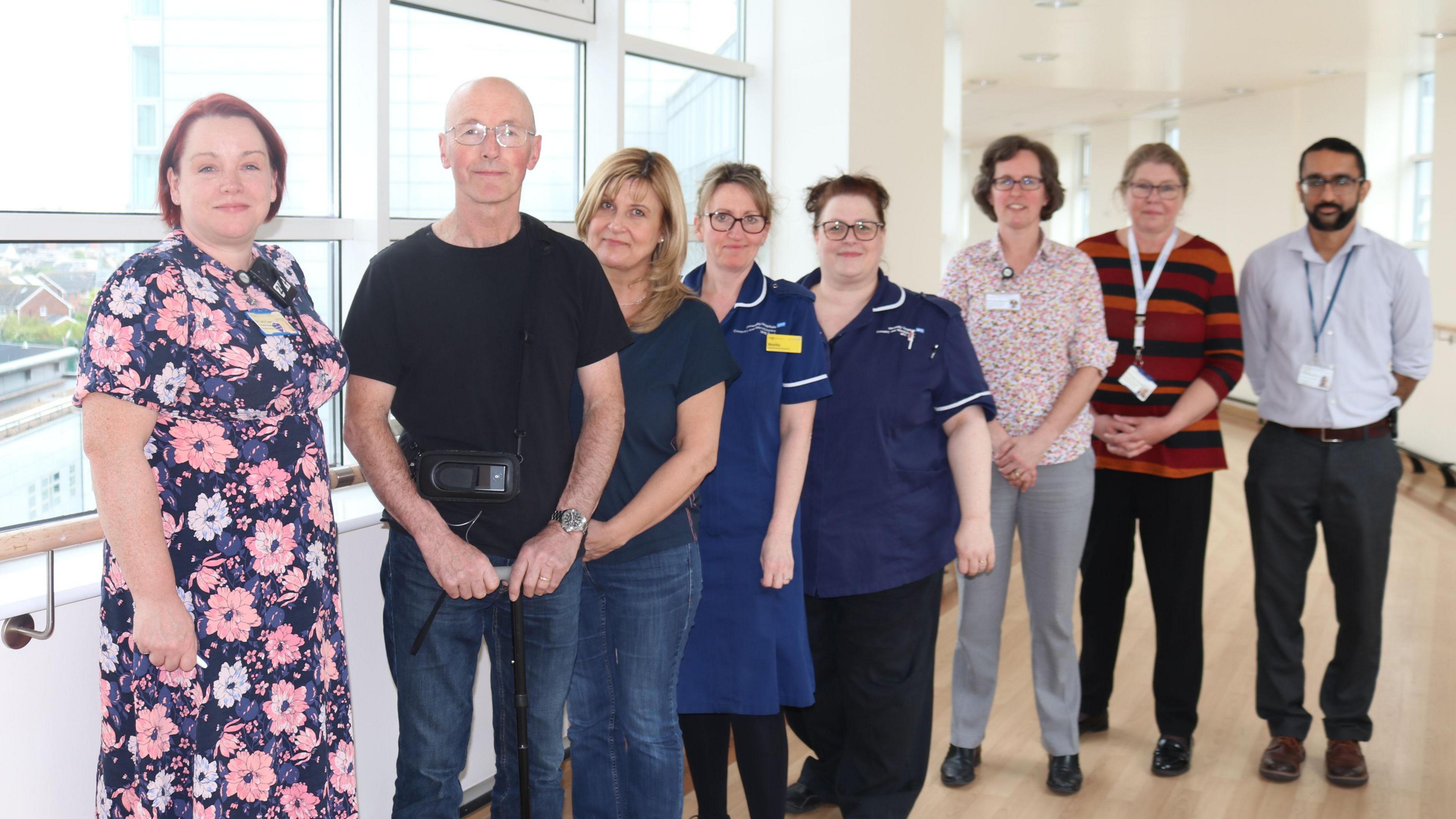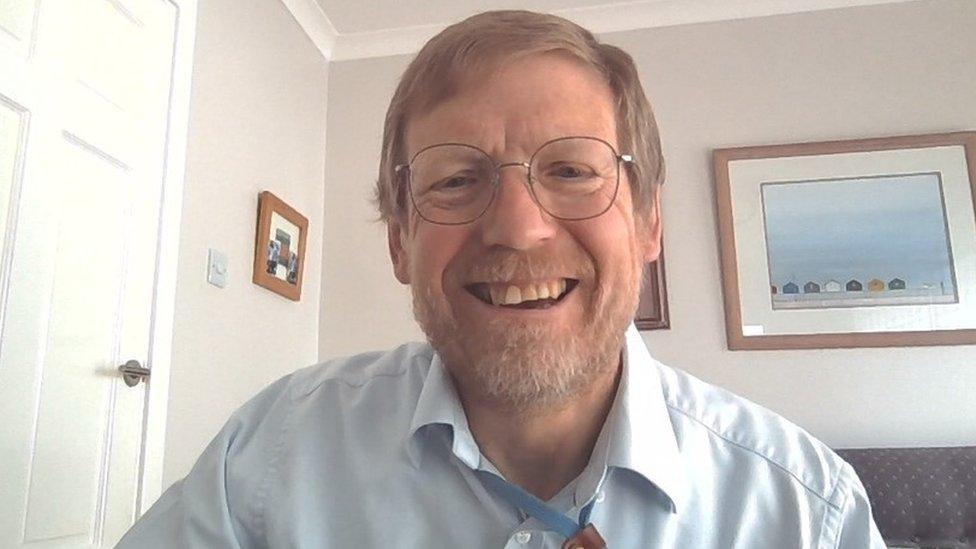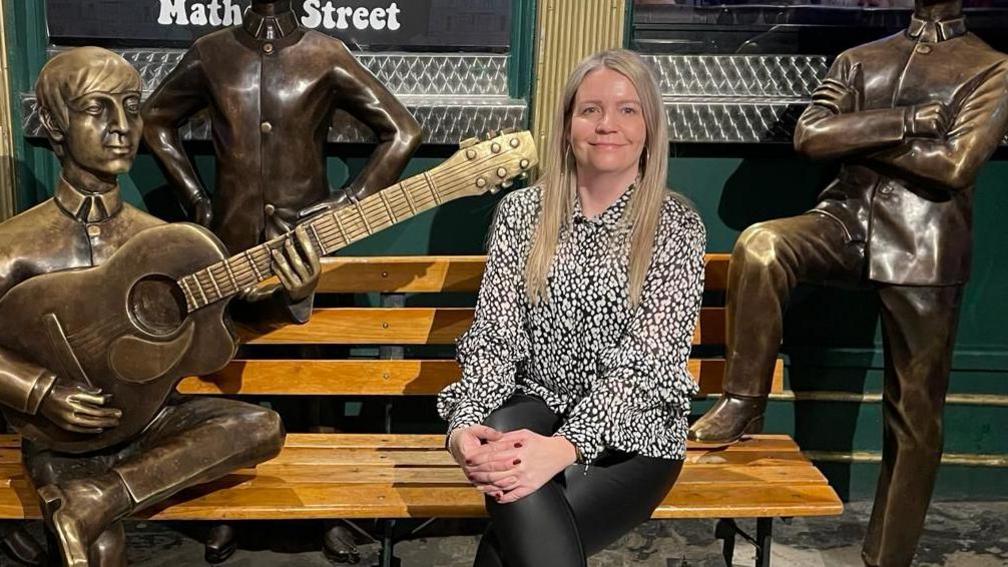First NHS outpatient receives new Parkinson's drug

Seamus Connolly, second from left, has become the first outpatient to begin ProDuodopa treatment for Parkinson's disease
- Published
An NHS trust has become the first in the England to deliver a new treatment for Parkinson’s disease to one of its outpatients.
Seamus Connolly, who was diagnosed with the disease in 2013, recently began Produodopa treatment at University Hospital Coventry.
The treatment, which involves wearing a portable kit, was recently approved for use by the NHS and uses a small automatic pump to steadily release medicine into the bloodstream.
Lara Teare, consultant neurologist at University Hospitals Coventry and Warwickshire NHS Trust (UHCW), said it was "exciting" to be able to offer the new therapy to patients.
“The team worked very quickly once we knew Produodopa would be available in the UK and it’s an honour to be the first centre in England to start this therapy in an outpatient setting," Ms Teare added.
Produodopa is a combination of two drugs, foslevodopa and foscarbidopa, and works by turning foslevodopa into the chemical dopamine, helping to transmit messages between parts of the brain and nerves that control movement.
This helps to manage symptoms of Parkinson's disease, external, a condition in which parts of the brain become progressively damaged, causing tremors, balance problems and slow movement.
'Hope for the future'
Patients can also administer an additional dose when needed, "offering greater personal control", UHCW said.
Mr Connolly had previously taken a large number of tablets for several years to control his symptoms.
“The immediate difference is that I don’t have to take lots of tablets throughout the day, just a few in the morning," he said. "I then change the syringe and I’m good to go.
“I used to have to think about everything, where I went, if I could make it home, but now I have confidence and hope for the future."
His wife, Maria, said he had better control of his movements and "was enjoying interacting more with his family and friends".
“We have four grown-up sons. For them, it feels like they’ve got their dad back, and for me, it feels like my husband is back,” she added.
Nearly 1,000 patients could be eligible for ProDuodopa treatment as the drug continues to be rolled out across the country.
Follow BBC West Midlands on Facebook, external, X,, external and Instagram, external, Send your story ideas to: newsonline.westmidlands@bbc.co.uk, external
- Published16 February 2024

- Published6 November 2023

- Published11 May 2023

- Published15 March 2024
